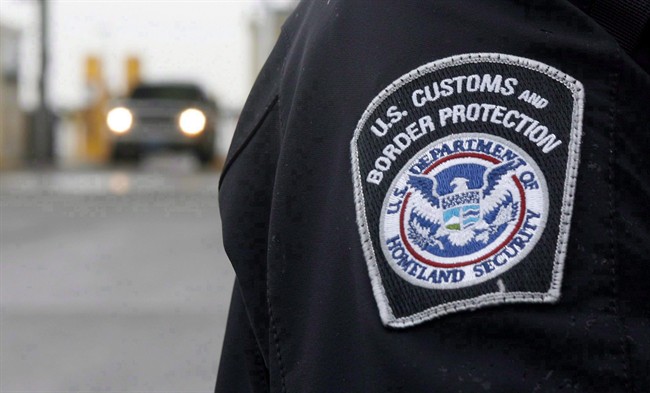Above: Two passengers who boarded Malaysia Airlines Flight 370 did so using stolen passports. Aviation authorities around the world face tough questions about why we’re not tracking stolen passports. Stuart Greer reports.

TORONTO – Arriving at the airport hours in advance to wait in the security line, take off your boots, empty your pockets and (if you’re lucky) stand still for a naked scan has become the norm in airports. But there’s a good chance no one’s checking whether you’re using a lost or stolen passport.
The security loophole grabbed the public’s attention Sunday when Interpol said its computer systems held information showing two passports used to board the now missing Malaysia Airlines flight had been reported stolen in the past, but no national authorities had checked the database.
While some reports suggest the stolen passports aboard Malaysian Airlines flight MH370 could be linked to terrorism, Interpol has been cautioning against identity theft and fake passports used by illegal immigrants and drug runners since international travel became accessible to the masses.
1 billion missed opportunities
The reality is the security oversights aren’t new: Interpol said travellers boarded planes without their passports being checked against their database of 40 million stolen or lost travel documents more than 1 billion times last year.
Interpol Secretary General Ronald K. Noble said in a statement Sunday that it has long asked why countries would “wait for a tragedy to put prudent security measures in place at borders and boarding gates.”

Officials gave recent examples of stolen travel documents being used: The killer of the Serbian prime minister crossed 27 borders on a missing passport before he was caught and Samantha Lewthwaite, the former wife of one of the suicide bombers in the 2005 attack on London’s transit system, escaped capture when she produced a fraudulently obtained South African passport.
READ MORE: What could have happened to Malaysia Airlines Flight MH370?
Authorities outmatched
Ticket-buying regulations and border control techniques vary from country to country, and an Interpol official says there’s no one-size-fits-all explanation why some countries don’t use its database systematically.
Interpol has 190 member countries, including Canada, but the lost or stolen travel documents database draws on information from only 167 countries. It was searched more than 800 million times last year, mostly by the United Arab Emirates. The U.S., Britain are other frequent users, with France and Switzerland routinely checking, according to Interpol.

RCMP Sgt. Julie Gagnon confirmed in an email to Global News that Canada contributes information to the database.
Passport Canada said Tuesday that once a passport has been reported lost or stolen, it’s no longer valid and can’t be used for travel.
“Passport Canada immediately deactivates a passport that has been declared lost or stolen to ensure that it is not used for fraudulent purposes, and to prevent its illegal use for international travel,” wrote spokesperson Nicole Fillion in an email. “This information is shared with the Canada Border Services Agency (CBSA), the Canadian Police Information Centre (CPIC) and INTERPOL.”
Canadian Border Services hasn’t responded as to how often Canada uses Interpol’s lost or stolen travel documents database, how many passports have been confiscated in Canada through its use, and how they determine which passports should be scanned.
“Now, we have a real case where the world is speculating whether the stolen passport holders were terrorists, while Interpol is asking why only a handful of countries worldwide are taking care to make sure that persons possessing stolen passports are not boarding international flights,” Noble said Sunday in relation to the Malaysia flight.
A lack of police resources, privacy concerns, or political hostilities with other countries are some reasons given for neglecting to check passports against the global data. Noble said in a November speech that four of every 10 international passengers are still not screened against the database.
But use is increasing, with border agents having checked it 740 million times in 2012, producing 60,000 hits.
Missing Malaysian Airlines flight MH370
The thefts of the two passports used on the still missing plane – one of Austrian national Christian Kozel in 2012, and one of Luigi Maraldi of Italy last year – were entered into Interpol’s database after they were stolen in Thailand, the police body said. Authorities are examining other suspicious passports and working to determine the true identities of those who used the stolen passports to board the Malaysia Airlines flight.
In Thailand, where immigration police last year caught a Thai man with 5,000 fake passports, officials say international co-operation helps, but passport forgers are now using advanced technology, and can evade capture with techniques like finding a lookalike to match the passport, or altering the passport photo.
Getting airlines and citizens involved
Interpol is in the early stages of preparing an initiative called “I-Checkit” to let businesspeople in the travel, banking and hospitality sectors screen documents against the lost documents database when customers book a flight, check into a hotel room or open a financial account.
With millions of state-issued passports in use around the world, citizens can also help with vigilance.
Police Lt. Gen. Panya Maman told reporters that Maraldi, the 37-year-old Italian, had deposited his passport as a guarantee at a motorbike rental shop. But when he returned the bike, the shop said they’d already given his passport to a man who looked like him. Maraldi then filed a missing passport report to local police in Phuket in July.
Maraldi said Sunday he had no idea who made off with it.
With files from The Associated Press
Editor’s note: This story was originally published March 10, but has been updated with information from the RCMP and Passport Canada.



Comments